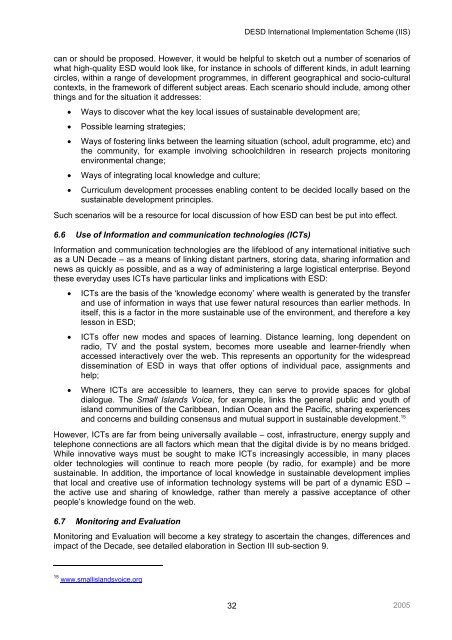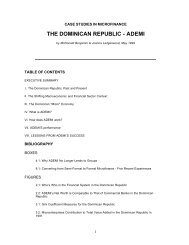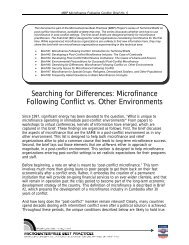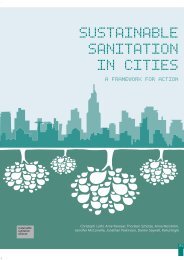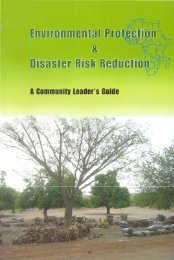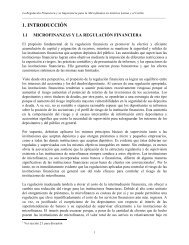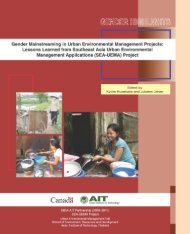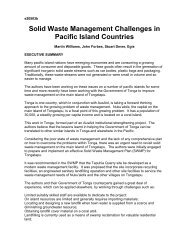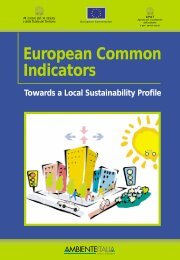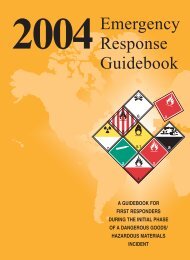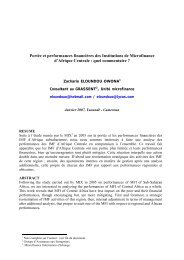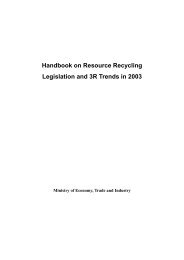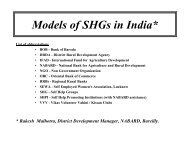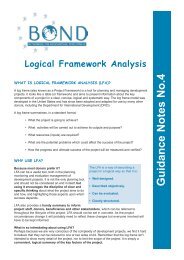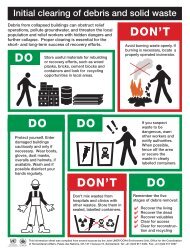The International Implementation Scheme (IIS) - Unesco
The International Implementation Scheme (IIS) - Unesco
The International Implementation Scheme (IIS) - Unesco
You also want an ePaper? Increase the reach of your titles
YUMPU automatically turns print PDFs into web optimized ePapers that Google loves.
DESD <strong>International</strong> <strong>Implementation</strong> <strong>Scheme</strong> (<strong>IIS</strong>)<br />
can or should be proposed. However, it would be helpful to sketch out a number of scenarios of<br />
what high-quality ESD would look like, for instance in schools of different kinds, in adult learning<br />
circles, within a range of development programmes, in different geographical and socio-cultural<br />
contexts, in the framework of different subject areas. Each scenario should include, among other<br />
things and for the situation it addresses:<br />
• Ways to discover what the key local issues of sustainable development are;<br />
• Possible learning strategies;<br />
• Ways of fostering links between the learning situation (school, adult programme, etc) and<br />
the community, for example involving schoolchildren in research projects monitoring<br />
environmental change;<br />
• Ways of integrating local knowledge and culture;<br />
• Curriculum development processes enabling content to be decided locally based on the<br />
sustainable development principles.<br />
Such scenarios will be a resource for local discussion of how ESD can best be put into effect.<br />
6.6 Use of Information and communication technologies (ICTs)<br />
Information and communication technologies are the lifeblood of any international initiative such<br />
as a UN Decade – as a means of linking distant partners, storing data, sharing information and<br />
news as quickly as possible, and as a way of administering a large logistical enterprise. Beyond<br />
these everyday uses ICTs have particular links and implications with ESD:<br />
• ICTs are the basis of the ‘knowledge economy’ where wealth is generated by the transfer<br />
and use of information in ways that use fewer natural resources than earlier methods. In<br />
itself, this is a factor in the more sustainable use of the environment, and therefore a key<br />
lesson in ESD;<br />
• ICTs offer new modes and spaces of learning. Distance learning, long dependent on<br />
radio, TV and the postal system, becomes more useable and learner-friendly when<br />
accessed interactively over the web. This represents an opportunity for the widespread<br />
dissemination of ESD in ways that offer options of individual pace, assignments and<br />
help;<br />
• Where ICTs are accessible to learners, they can serve to provide spaces for global<br />
dialogue. <strong>The</strong> Small Islands Voice, for example, links the general public and youth of<br />
island communities of the Caribbean, Indian Ocean and the Pacific, sharing experiences<br />
and concerns and building consensus and mutual support in sustainable development. 15<br />
However, ICTs are far from being universally available – cost, infrastructure, energy supply and<br />
telephone connections are all factors which mean that the digital divide is by no means bridged.<br />
While innovative ways must be sought to make ICTs increasingly accessible, in many places<br />
older technologies will continue to reach more people (by radio, for example) and be more<br />
sustainable. In addition, the importance of local knowledge in sustainable development implies<br />
that local and creative use of information technology systems will be part of a dynamic ESD –<br />
the active use and sharing of knowledge, rather than merely a passive acceptance of other<br />
people’s knowledge found on the web.<br />
6.7 Monitoring and Evaluation<br />
Monitoring and Evaluation will become a key strategy to ascertain the changes, differences and<br />
impact of the Decade, see detailed elaboration in Section III sub-section 9.<br />
15 www.smallislandsvoice.org<br />
32<br />
2005


